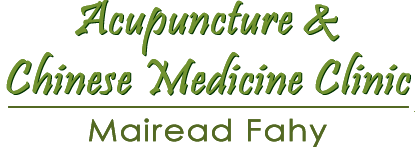Feel better and lose weight with Acupuncture and TCM
So.. now the Christmas festivities are over! You’ve eaten and drank enough for the whole year ahead, and no matter how good you had been before the silly season.. the effects of the Christmas splurge are now beginning to make themselves evident. Youre tired, irritable, sluggish, the pounds have piled on, and you just don’t seem to have the motivation to do anything about it! So … what can you do? You would join the gym, but you just don’t have the energy… you could go on a diet but whats the point? Don’t despair… there is help… probably in a way you’ve never even considered before… Acupuncture! It can – believe it or not , kick start your new attitude and your new year!
Never thought about acupuncture in these terms? Not surprisingly! Most people associate acupuncture with the relief of pain… and it is indeed unrivalled in this respect! In fact, acupuncture can work where all else fails – but it can do so much more than this!
It is only one branch of an ancient system of medicine called Traditional Chinese Medicine, – and because it is so ancient and a medicine in its own right, it has a method of diagnosis which is unique also. Because of this, when you attend an acupuncturist for treatment.. you will hear terms such as “Damp”, “Cold”, Heat”, “Deficiency”, “Excess”, “Qi”, (pronounced Chee), and how a combination of any of these diagnostic terms, can affect the smooth flow of energy within the body organs, and thus affect the energy of the body itself!
In the case of the festive indulgences, quite often any of the above may have been either introduced, or have aggravated an already existing condition, by improper eating and drinking, and the energies of the Spleen and Stomach organs may have been affected. In Traditional Chinese Medicine, as in conventional medicine, the Spleen and Stomach play a vital role in digestive functions.
Just a note about the Spleen!
The Spleen in particular is of vital importance in Traditional Chinese Medicine. It is the organ of adaptation, and its special function is to “Transport and “Transform”. What this means essentially is that the Spleen adapts to our particular nutritional needs, transforming the food we eat into Blood and energy and transporting it around the body to nourish the fascia, muscles and brain. So when we “overload” it with inappropriate food and drink , its function of “Transporting and Transforming” is greatly impaired, and we are left feeling bloated, sluggish, constipated, tired, unmotivated and cant think clearly.
So how does Acupuncture work to re invigorate your Spleen and Stomach? Put very simply… the insertion of very fine, sterile disposable needles along certain points of the body including the ear, which travel along pathways of Qi or energy, which also flow through the organs of the body, – can boost what needs boosting, clear whatever is detrimental to the smooth flow of Qi, (energy) and, in general, bring the body back to a state of balance and harmony. The result is that you feel better, your metabolism increases, and with a healthier diet and a little exercise (you will feel so good you will want to do it!) – you will even start to lose weight!
So make Acupuncture part of your New Year resolution, and take the first important steps to improving your health and your life.
Call Mairead Fahy, Acupuncture and Chinese Medicine Clinic, The Avenue, Gorey, Co. Wexford. 0539483155 or 0876452409.

